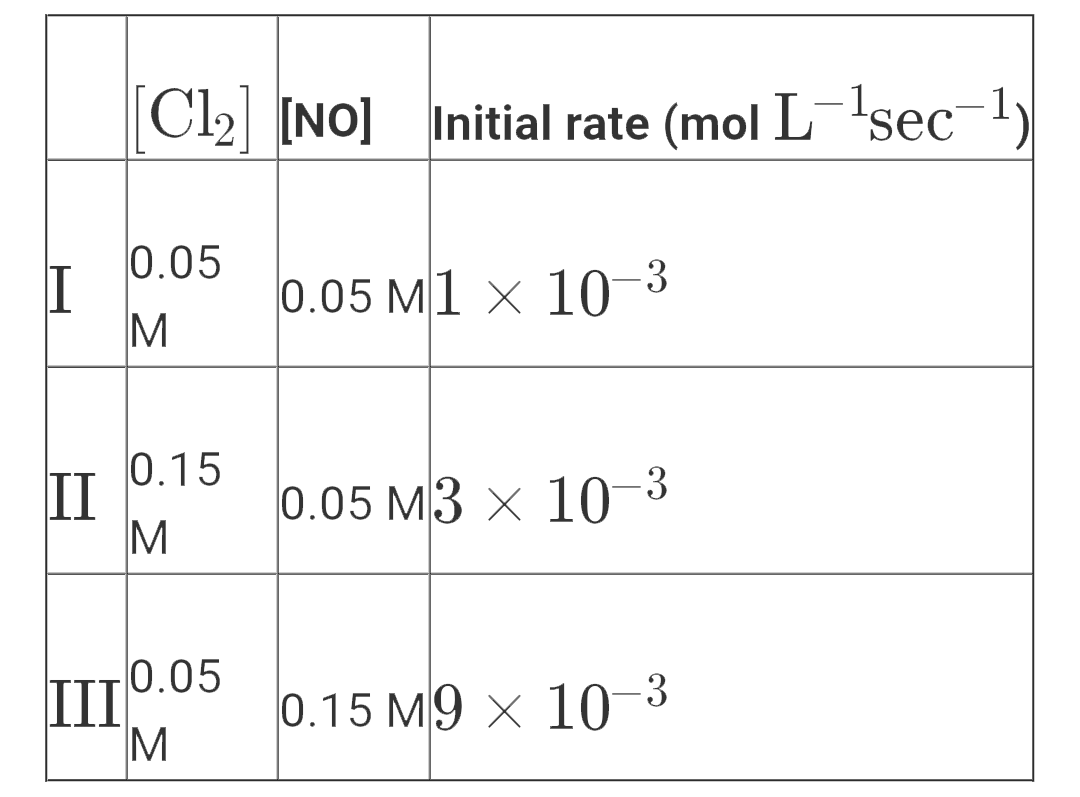The rate law for the reaction, RCl+NaOH(aq)→ROH+NaCl is given by Rate =k[RCl] The rate of reaction will be
Doubled on doubling the concentration of sofium hydroxide.
Halved on reducing the concentration of alkyl halide to one half.
Decrease on increaisng the temperature of the reaction.
Unaffected by increaisng the temperature of the reaction.
The correct Answer is:B
Step by step video & image solution for The rate law for the reaction, RCl+NaOH(aq)rarrROH +NaCl is given by Rate =k[RCl] The rate of reaction will be by Chemistry experts to help you in doubts & scoring excellent marks in Class 12 exams.
Topper's Solved these Questions
- BOOK - CENGAGE CHEMISTRY ENGLISHCHAPTER - CHEMICAL KINETICSEXERCISE - Exercises Assertion-Reasoning22videos
CHEMICAL KINETICS
- BOOK - CENGAGE CHEMISTRY ENGLISHCHAPTER - CHEMICAL KINETICSEXERCISE - Exercises Integer15videos
CHEMICAL KINETICS
- BOOK - CENGAGE CHEMISTRY ENGLISHCHAPTER - CHEMICAL KINETICSEXERCISE - Exercises Multiple Correct33videos
CHEMICAL KINETICS
- BOOK - CENGAGE CHEMISTRY ENGLISHCHAPTER - CARBOXYLIC ACIDS AND THEIR DERIVATIVESEXERCISE - Exercises Archives (Analytical And Descriptive)34videos
CARBOXYLIC ACIDS AND THEIR DERIVATIVES
- BOOK - CENGAGE CHEMISTRY ENGLISHCHAPTER - COORDINATION COMPOUNDSEXERCISE - Archives Subjective18videos
COORDINATION COMPOUNDS
Similar Questions
The rate law for the reaction
RCl+NaOH(aq)→ROH+NaCl is given by
Rate =k[RCl]. The rate of the reaction will beView SolutionAssertion (A): For the reaction
RCl+NaOH(g)→ROH+NaCl, the rate of reaction is reduced to half on reducing the cocentration of RCl to half.
Reason (R ): The rate of the reaction is represented by k[RCl], i.e., it is a first order reaction.View Solution
Knowledge Check
- Question 1 - Select One
The rate law for the reaction, RCI+Na(aq)→ROH+NaCl is given by, rate =K1[RC]. The rate of the reaction will be
Adoubled on doubling the concentration of sodium hydroxideBhalved on reducing the concentration of alkyl halide to halfCdecreased on increasing the temperature of the reactionDunaffected by increasing the temperature of the reaction - Question 2 - Select One
The rate law for a reaction A+B→C+D is given by the expression k[A]. The rate of reaction will be
Adoubled on doubling the concentration of BBhalved on reducing the concentration of A to halfCDecreased on increasing the temperature of the reactionDunaffected by any change in concentration or temperature. - Question 3 - Select One
Rate law for the reaction, A+2B→C is found to be
Rate =k[A][B]
Concentration of reactant 'B' is doubled keeping the concentration of 'A' constant, the value of rate constant will be _______Athe sameBdoubledCquadrupledDhalved
If the rate of reaction between A and B is given by rate =k[A][B]2, then the reaction is
View SolutionThe given data are for the reaction, 2NO(g)+Cl(g)→2NOCl(g) at 298K

The rate law of the reactions isView SolutionRate law for the reaction, A+2B→C is found to be
Rate =k[A][B]
Concentration of reactant 'B' is doubled keeping the concentration of 'A' constant, the value of rate constant will be _______View SolutionRate law for the reaction A+2B→Cis found to be Rate =k[A][B] Concentration of reactant 'B' is doubled. Keeping the concentration of 'A' constant, the value of rate constant will be:
View SolutionRate law for the reaction A+2B→Cis found to be Rate =k[A][B] Concentration of reactant 'B' is doubled. Keeping the concentration of 'A' constant, the value of rate constant will be:
View Solution

